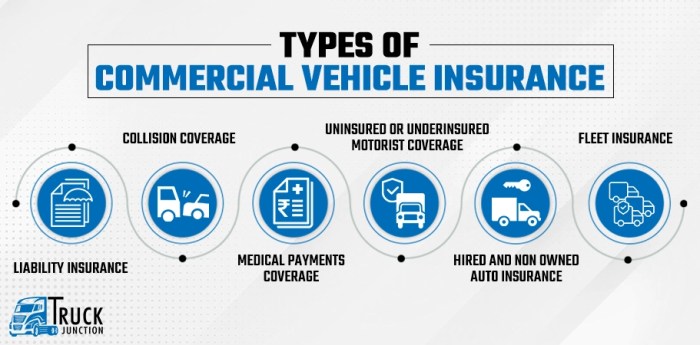In the world of contracting, risks are inevitable. This is where Contractors Business Insurance Coverage steps in to safeguard your business and future. From legal requirements to tailored coverage options, this guide dives deep into the essentials contractors need to know.
Importance of Contractors Business Insurance Coverage

Contractors business insurance coverage is essential for protecting contractors from various risks and liabilities that may arise during their work. Without adequate insurance, contractors may face significant financial losses and legal consequences.
Risks Faced Without Proper Insurance
- Property Damage: In the construction industry, accidents happen, and without insurance, contractors may be held liable for damages to the property they are working on.
- Third-Party Injuries: If a third party, such as a client or passerby, is injured on a contractor's job site, the contractor may be responsible for medical expenses and legal fees without insurance coverage.
- Contract Disputes: Without insurance, contractors may face costly legal battles in case of contract disputes, leading to financial strain and damage to their reputation.
Legal Requirements for Contractors
Contractors are often required by law or clients to have specific types of insurance coverage, such as general liability insurance or workers' compensation insurance. Failure to meet these requirements can result in penalties, fines, and even loss of business opportunities.
Consequences of Not Having Proper Insurance
- Financial Loss: Without insurance, contractors risk bearing the full cost of damages, injuries, or legal claims, which can lead to financial ruin or bankruptcy.
- Legal Troubles: Contractors may face lawsuits, legal disputes, and even the suspension of their license for operating without the necessary insurance coverage.
- Reputation Damage: Not having proper insurance can harm a contractor's reputation in the industry, leading to a loss of trust from clients and reduced business prospects.
Types of Insurance Coverage for Contractors

Insurance coverage is essential for contractors to protect their businesses from unforeseen risks and liabilities. There are several types of insurance policies available specifically tailored to the needs of contractors. Let's explore the different types of insurance coverage that contractors should consider:
General Liability Insurance vs. Professional Liability Insurance
General liability insurance provides coverage for claims related to third-party bodily injury, property damage, and advertising injury. On the other hand, professional liability insurance, also known as errors and omissions insurance, protects contractors from claims of negligence or inadequate work performance.
While general liability insurance covers a broad range of risks, professional liability insurance is more focused on protecting contractors from claims related to their professional services.
Workers' Compensation Insurance
Workers' compensation insurance is crucial for contractors who have employees. This type of insurance provides coverage for medical expenses and lost wages for employees who are injured on the job. Workers' compensation insurance helps contractors fulfill their legal obligations and provides financial protection in case of workplace injuries or illnesses.
Property Insurance
Property insurance protects contractors' physical assets, such as tools, equipment, and buildings, from risks like fire, theft, and vandalism. This type of insurance ensures that contractors can recover financially in case of damage or loss to their property. Property insurance is essential for contractors who rely on equipment and tools to perform their work efficiently.Overall, contractors should carefully consider their insurance needs and invest in comprehensive coverage to safeguard their businesses from potential risks and liabilities.
Factors to Consider when Choosing Insurance Coverage
When selecting insurance coverage, contractors need to carefully consider several key factors to ensure they have adequate protection for their business. Factors such as project size, scope, and specific needs play a crucial role in determining the right insurance coverage.
Evaluating insurance providers and customizing coverage are also essential steps in this process.
Impact of Project Size and Scope on Insurance Needs
Project size and scope have a significant impact on the insurance needs of contractors. Larger projects with higher risks and exposures may require more comprehensive coverage compared to smaller projects. It is essential for contractors to assess the size and complexity of their projects to determine the appropriate level of insurance coverage needed to protect their business.
Tips on Evaluating Insurance Providers for Contractors
When choosing insurance providers, contractors should consider factors such as reputation, financial stability, customer service, and coverage options. It is important to research and compare different providers to find one that offers the best value and meets the specific needs of the contractor.
Reading reviews, checking ratings, and asking for recommendations can help contractors make an informed decision when selecting an insurance provider.
Strategies for Customizing Insurance Coverage based on Specific Contractor Needs
To customize insurance coverage based on specific contractor needs, contractors should first identify their unique risks and exposures. By understanding their business operations, services provided, and potential liabilities, contractors can work with their insurance provider to tailor a policy that addresses their specific needs.
Adding endorsements, increasing coverage limits, or bundling policies are some strategies that contractors can use to customize their insurance coverage effectively.
Cost of Insurance and Budgeting Tips

Insurance premiums for contractors are calculated based on various factors such as the type of work being done, the size of the business, the location, the number of employees, and the past claims history. The higher the risk associated with the contractor's work, the higher the premium is likely to be.
Managing Insurance Costs Effectively
- Shop around and compare quotes from different insurance providers to ensure you are getting the best deal.
- Consider bundling multiple insurance policies with the same provider for potential discounts.
- Implement risk management strategies to reduce the likelihood of accidents or claims, which can help lower premiums in the long run.
- Review your insurance coverage regularly to ensure you are not paying for more coverage than you need.
Budgeting Tips for Contractors
- Allocate a specific portion of your budget for insurance premiums to ensure you can afford coverage without cutting into essential business expenses.
- Consider setting up a separate savings account specifically for insurance costs to avoid any financial strain when premiums are due.
- Work with an insurance agent or broker to explore flexible payment options, such as monthly installments, to better manage cash flow.
Balancing Coverage Needs with Budget Constraints
- Focus on essential coverage that protects against the most common risks faced by contractors in your specific industry.
- Consider increasing deductibles or self-insuring for certain risks to lower premiums while still maintaining adequate coverage.
- Regularly review your insurance needs and adjust coverage levels as your business grows or changes to ensure you are adequately protected without overspending.
Ultimate Conclusion
As we conclude our exploration of Contractors Business Insurance Coverage, remember that being prepared is key. By understanding the importance of specific insurance policies and factors to consider, contractors can navigate the complexities of their industry with confidence and peace of mind.










